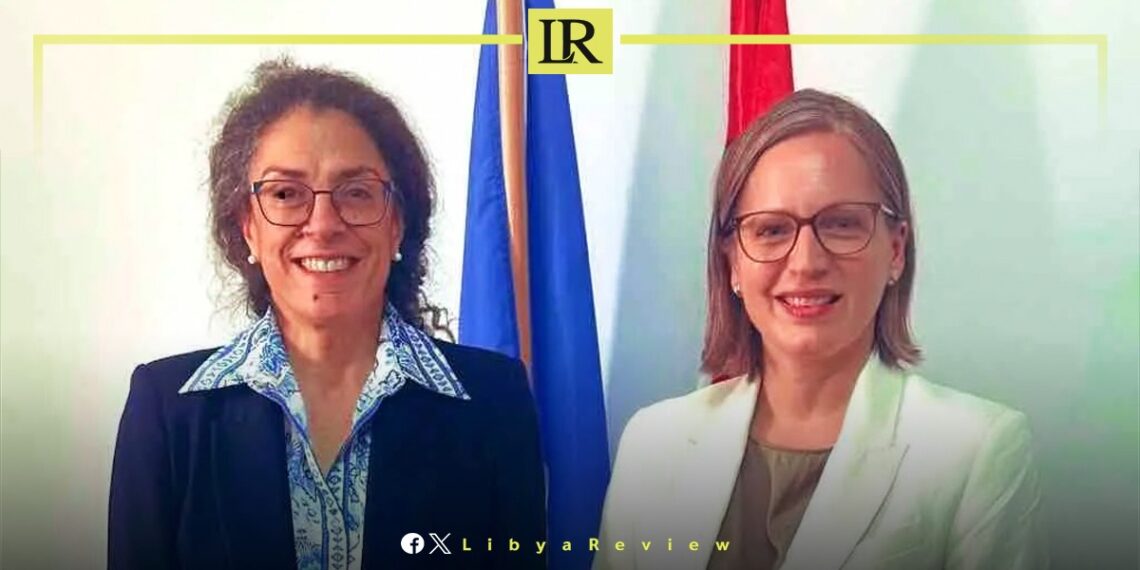In a crucial meeting, the Acting Head of the United Nations Support Mission in Libya (UNSMIL), Stephanie Khouri, and Austria’s Ambassador to Libya, Barbara Gross, underscored the significance of establishing a unified government and institutions across Libya.
According to an official statement by UNSMIL, the discussion also delved into the pathways for conducting upcoming elections and addressed pressing issues such as irregular migration and human rights concerns.
This dialogue is part of ongoing international efforts to stabilise Libya by supporting the political process, aiding in organizing elections and promoting human rights. The unification of institutions is seen as a pivotal step towards achieving lasting peace and stability in the region.
On Sunday, the head of the National High Commission for Elections in Libya, Emad Al-Sayeh, held talks with Stephanie Khoury, Deputy Special Envoy of the UN Secretary-General, along with her accompanying delegation. This visit by the UN representative highlights the international community’s commitment to supporting Libya’s electoral process.
The meeting focused on preparations for the municipal council elections, set to begin on June 9. Both parties examined the positions of various political entities regarding the electoral process in general and the municipal elections specifically, assessing how these stances could impact the feasibility and success of the elections.
Additionally, they addressed challenges facing the support project managed by the United Nations Development Programme (UNDP) in Libya, emphasizing the need for urgent decisions to advance the project and support the elections.
Libya has faced significant hurdles in its journey toward stable governance since the 2011 revolution that toppled long-time leader Muammar Gaddafi. The revolution’s aftermath plunged the country into a protracted civil conflict, fragmenting Libya into competing political and military factions and severely impacting national institutions, including the electoral system.
The 2015 Libyan Political Agreement, signed in Skhirat, Morocco, aimed to unify Libya’s governance structures. However, implementation has been slow and fraught with ongoing conflict. The Berlin Process, initiated in 2020, brought together international stakeholders to support a ceasefire and a political roadmap, including facilitating elections. Despite these efforts, achieving unified and stable governance remains challenging.
The municipal council elections are critical for re-establishing local governance and ensuring Libyan citizens have a voice in local affairs. These elections are part of a broader strategy to decentralize power and build democratic institutions from the ground up. International support, particularly from the UN, is vital in providing the technical assistance, resources, and oversight needed for free and fair elections.


